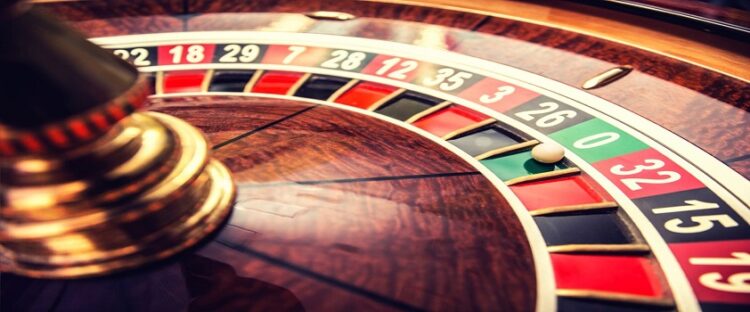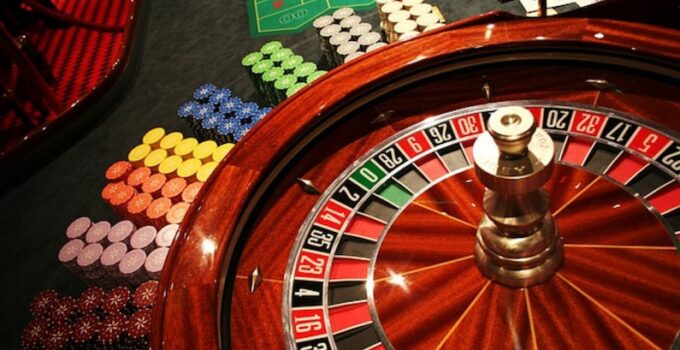The gambler’s fallacy is a cognitive bias that causes people to overestimate their chances of winning in a gambling situation. This bias can lead people to gamble more money than they should, because they believe that even if they lose, it will not be as bad as if they had not gambled at all. It can also cause people to psychologically attach importance to winning or losing money, which can increase the chance of them gambling excessively.
Page Contents
How The Gambler’s Fallacy Affects Decision Making?
The fallacy works like this: people tend to overestimate their chances of winning and underestimate their chances of losing in gambling situations. This can lead to decisions that are too risky, even if the odds of success are not in your favor. Because they underestimated their chances of losing, they made a risky decision to bet even more money on the next flip – which could have resulted in them losing everything!
The gambler’s fallacy can affect individuals across all walks of life. In casinos and other recreational gambling venues, it is especially common for people to fall victim to this fallacy. Studies have also shown that people tend to make riskier decisions in financial markets when they overestimate their own knowledge and abilities.
When it comes to gambling, there are few things you can do to completely avoid the gambler’s fallacy. However, by paying close attention to your odds of success and refusing to bet more money than you can afford to lose, you can reduce the likelihood that it will affect your decisions. Casinos, such as www.20bet.icu, will typically have betting limits in place to help you stay within safe boundaries, so be sure to ask about these before you start gaming. Best advice is, before even starting you should prepare for all scenarios. One of the ways to prevent losses, and ensure online casino best payouts is to do research and talk to people who seem to be on top of things when it comes to gambling.
How to Avoid the Gambler’s Fallacy?

Source: bitcasino.io
The gambler’s fallacy is the tendency to mistakenly believe that because a random event has occurred, it must have been caused by something inherent in the individual performing the event or in the situation. The fallacy can lead to gambling decisions that are based on luck rather than skill and can cause feelings of regret and loss.
According to cognitive scientist Paul Slovic, research has shown that people tend to overestimate their chances of success when gambling and underestimate their chances of failure. This leads them to gamble more than they would if they knew their true odds of winning.
He believes that this tendency is due to a psychological concept known as availability heuristic, which states that we rely on what we know rather than how likely it is that what we know is accurate. When faced with uncertain situations, such as betting on a sporting event, people tend to remember instances where they were successful (e.g., when they won) and forget instances where they were unsuccessful (e.g., when they lost). Thus, when faced with an uncertain gambling situation, people will tend to overvalue their chances of success and undervalue their chances of failure.
The gambler’s fallacy can also lead individuals to make emotional decisions instead of rational ones when gambling. For example, an individual may become upset if he or she loses money and thus may refrain from making rational decisions while gambling in order to try again later in hopes of winning more money. Try to avoid overconfidence when gambling, as this can lead to gambling losses. Be aware of your own emotions when gambling and do not let yourself get carried away. Also, do not gamble with money that you cannot afford to lose.
The Effect of the Gambler’s Fallacy on Performance

Source: effectiviology.com
The Gambler’s Fallacy is a cognitive bias that can lead to poor decision making. It is the idea that because we are attracted to risky options, we will automatically perform better in those situations. However, this is not always the case. The fallacy often leads us to gamble more than we should, and as a result, our chances of winning diminish significantly.
There are a few reasons why this happens.
First, when we gamble because we are tempted by the prospect of winning big, we are usually not rational about it. We may be emotionally drawn to the prospect of winning money, and so our decision-making process becomes clouded by excitement and impulsiveness. This is especially true if we have never gambled before or if we are relatively unfamiliar with how gambling works.
Second, even if we are consciously trying to make sound decisions while gambling, there’s always the chance that something will go wrong. This could happen for any number of reasons – from simple unlucky twists of fate to deliberate trickery on the part of casino staff – and so our odds of actually winning decrease significantly regardless of how well we’re playing.
The upshot is that the gambler’s fallacy can actually do more harm than good when it comes to our gambling habits. By focusing too much on the potential rewards instead of taking objective account of our chances of success, we run a serious risk of getting ourselves into trouble. If you find yourself struggling to control your gambling, it might be worth considering whether or not you are succumbing to the gambler’s fallacy.
Wrapping Up

Source: etmoney.com
The gambler’s fallacy is the tendency of people to believe that they will win more often than they will lose when gambling. This is a mistake because it allows gamblers to put more money on the line and increase their chances of losing. It can be traced back to two things: our cognitive biases and our emotional tendencies.
Our cognitive biases are simply ways that our brain processes information, while our emotional tendencies drive how we make decisions. When we place too much trust in luck or expect good luck to always come our way, we run the risk of making this type of error. However, with a little mindfulness and practice, you can train yourself not to fall victim to the gambler’s fallacy in future gambling encounters.





